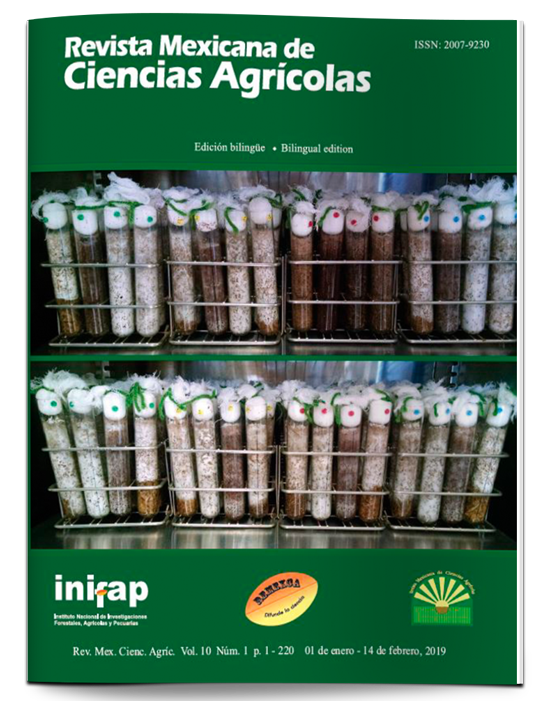Mexican rural extensionism: conjunctural analysis with a public policy approach
DOI:
https://doi.org/10.29312/remexca.v10i1.1117Keywords:
adoption of technologies, extension agents, extension component and productive innovation, rural innovation.Abstract
With the objective of contributing to the knowledge of the results of the rural extension public policy in Mexico, the degree of adoption of new technologies and capacity development among the beneficiaries was analyzed according to different attributes and characteristics of their production units. The 2014 national survey of beneficiaries of the monitoring and evaluation system of the extension and productive innovation component was used, which collected information in ten states of the republic and its sample size amounted to 1 062 questionnaires. The rate of adoption of new technologies and capacity development was calculated and it was found that -in contrast to the modernizing paradigm on which the national extension policy is based- small producers are not the priority population for a results-oriented policy, but rather those with average income and productive assets. Statistically significant differences were found between the average value of the index and variables such as sex, age, schooling, area and investment in assets of the production unit, this allows to establish specific strategies to promote a public policy of differentiated extension, focused on empirical evidence to production unit level.
Downloads
Downloads
Published
How to Cite
Issue
Section
License
The authors who publish in Revista Mexicana de Ciencias Agrícolas accept the following conditions:
In accordance with copyright laws, Revista Mexicana de Ciencias Agrícolas recognizes and respects the authors’ moral right and ownership of property rights which will be transferred to the journal for dissemination in open access. Invariably, all the authors have to sign a letter of transfer of property rights and of originality of the article to Instituto Nacional de Investigaciones Forestales, Agrícolas y Pecuarias (INIFAP) [National Institute of Forestry, Agricultural and Livestock Research]. The author(s) must pay a fee for the reception of articles before proceeding to editorial review.
All the texts published by Revista Mexicana de Ciencias Agrícolas —with no exception— are distributed under a Creative Commons License Attribution-NonCommercial 4.0 International (CC BY-NC 4.0), which allows third parties to use the publication as long as the work’s authorship and its first publication in this journal are mentioned.
The author(s) can enter into independent and additional contractual agreements for the nonexclusive distribution of the version of the article published in Revista Mexicana de Ciencias Agrícolas (for example include it into an institutional repository or publish it in a book) as long as it is clearly and explicitly indicated that the work was published for the first time in Revista Mexicana de Ciencias Agrícolas.
For all the above, the authors shall send the Letter-transfer of Property Rights for the first publication duly filled in and signed by the author(s). This form must be sent as a PDF file to: revista_atm@yahoo.com.mx; cienciasagricola@inifap.gob.mx; remexca2017@gmail.
This work is licensed under a Creative Commons Attribution-Noncommercial 4.0 International license.



